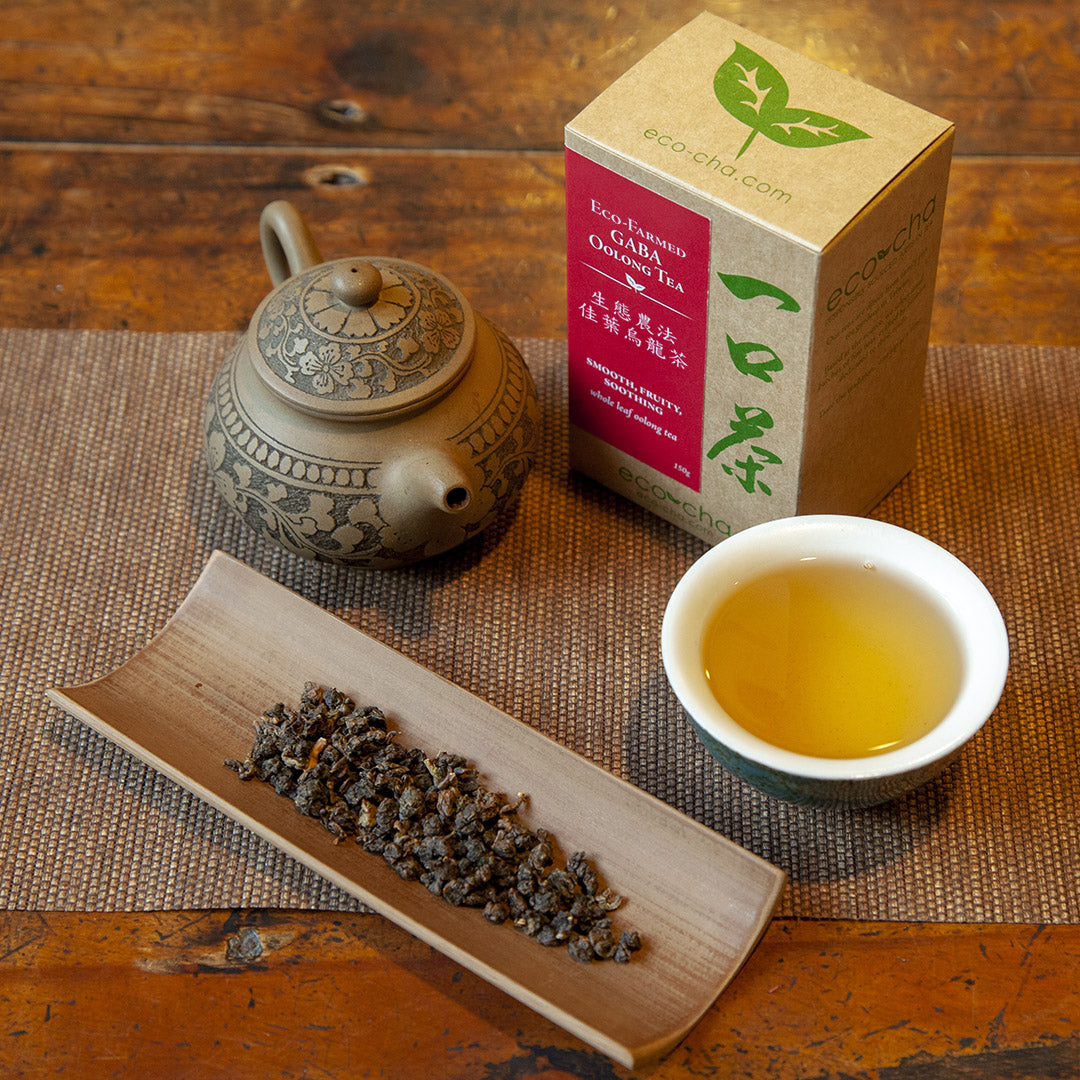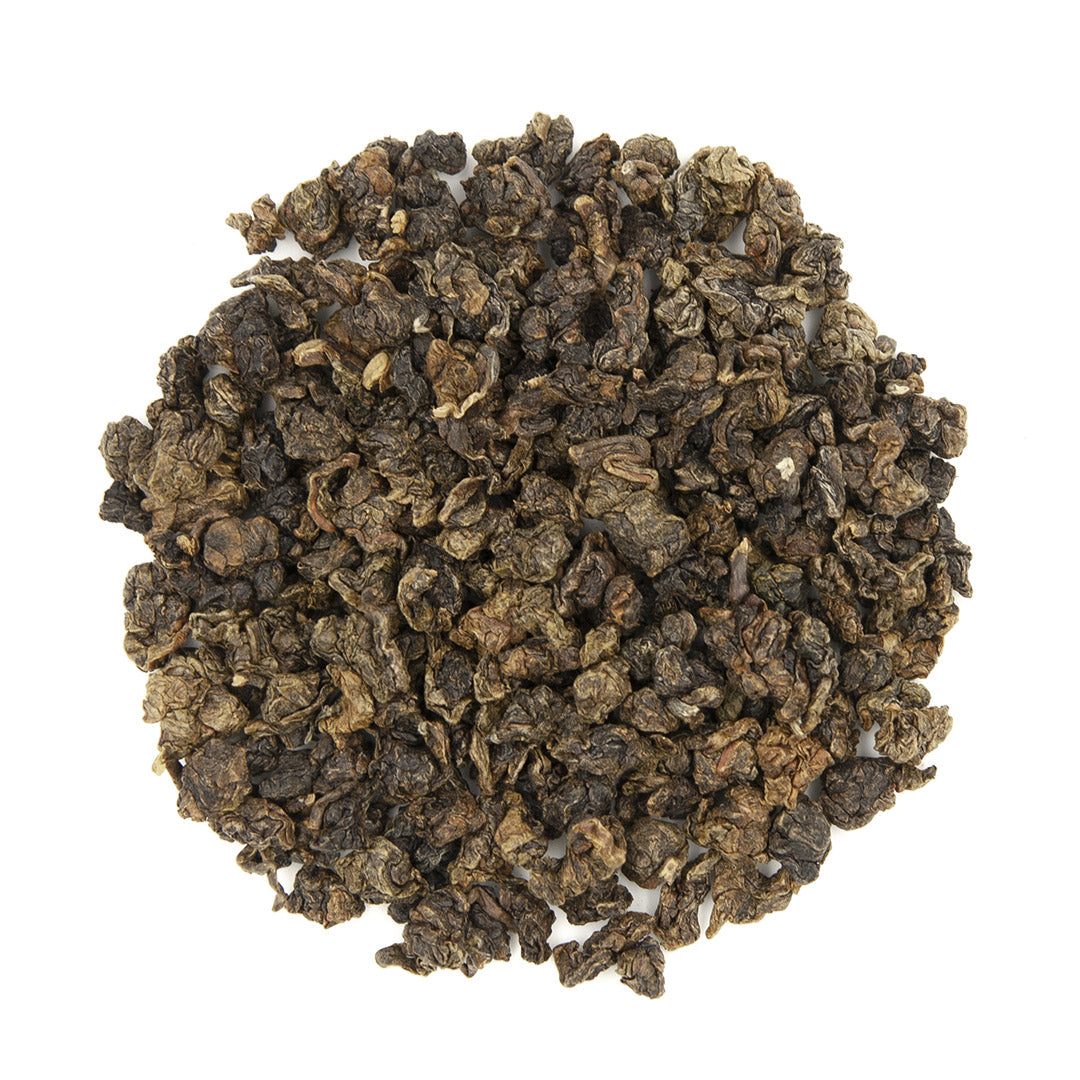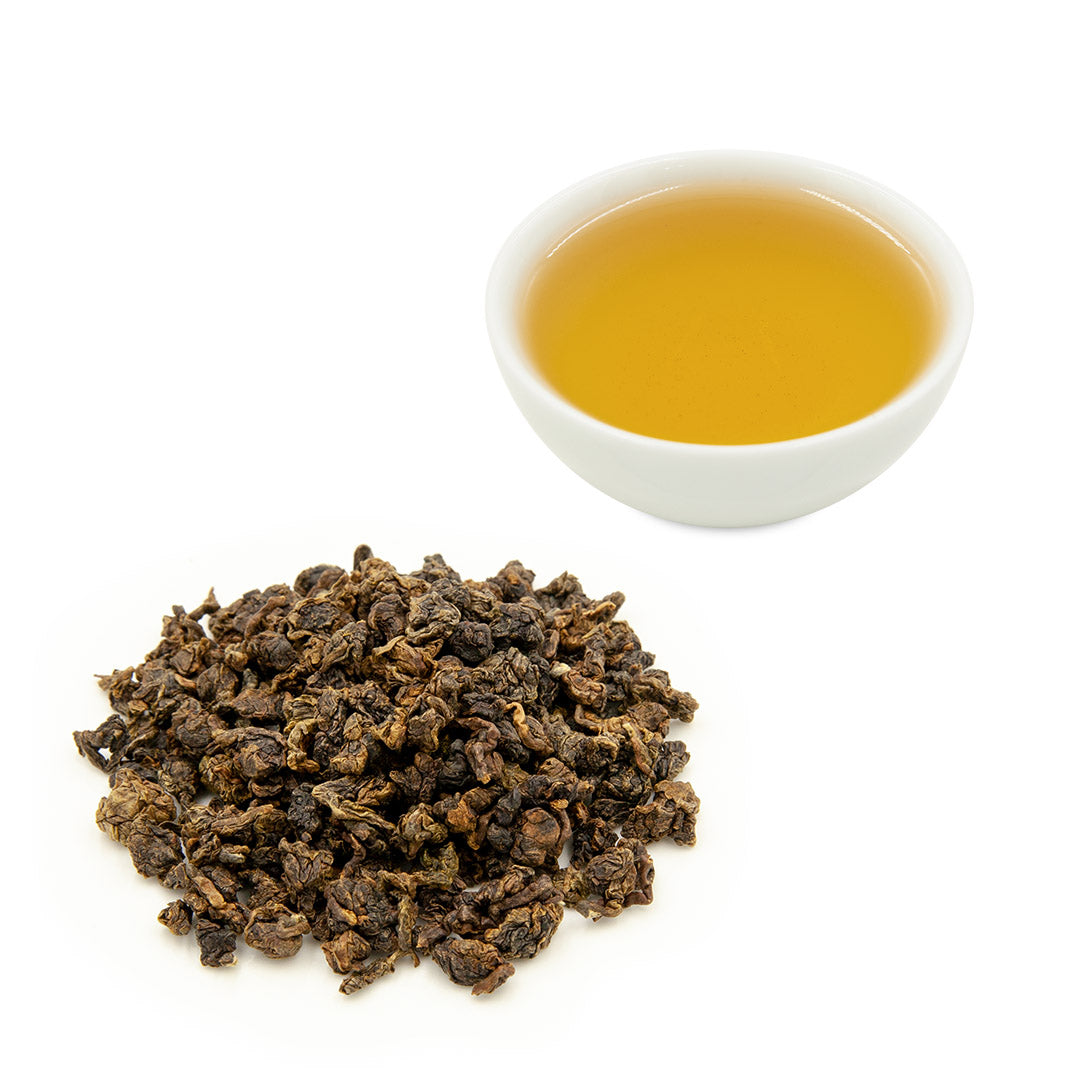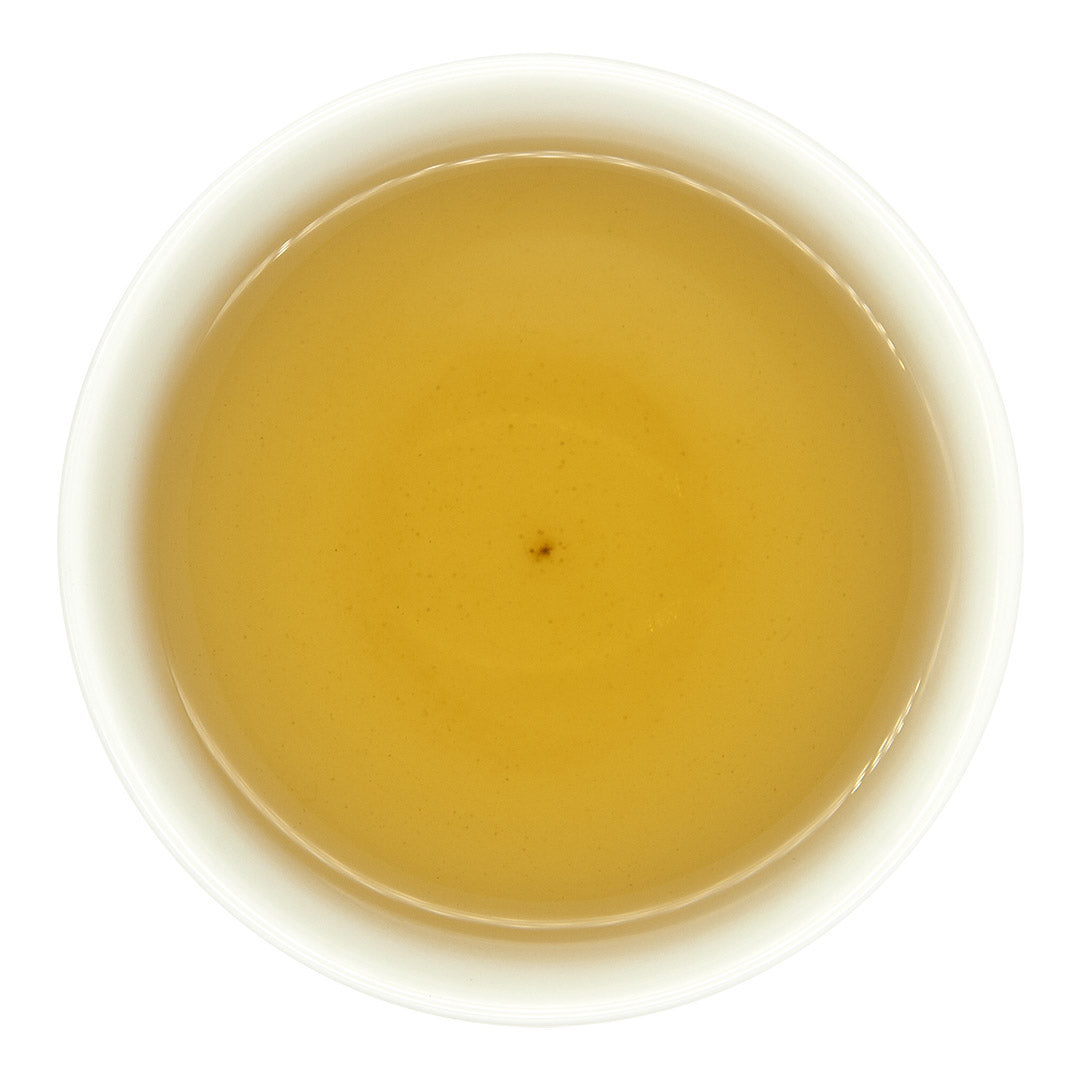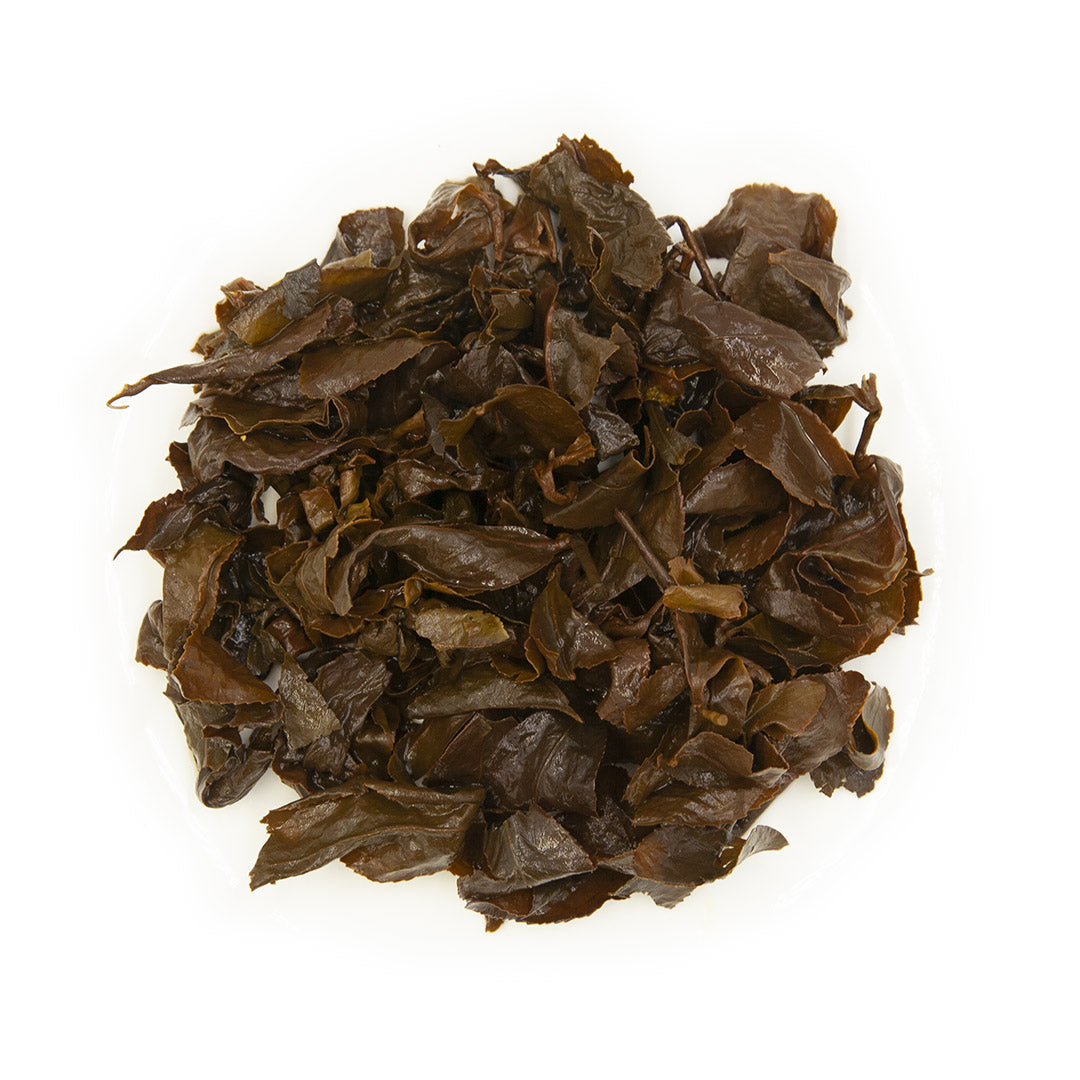Eco-Farmed GABA Oolong Tea
US$5
Please select all options.
-
Flavor: Fruit compote aroma. Notes of blackberry, plum and palm sugar. Tangy/sweet lingering dry finish.
Garden: The family producers of this tea are the most progressive and sustainable tea farmers we've met. They employ completely natural farming methods. They are also conducting ongoing experimentation in their processing methods to maximize the quality and value of their produce.
Harvest: Machine trimmed, small batch. Fall 2025.
Elevation: 400m
-
It has qualities of a delicate Black Tea, with the complexity and depth that defines Oolong Tea. It's mild in character, but very substantial and well balanced in its flavor profile. Smooth on the palate, with tangy, fruity notes, and a lasting heady finish.
Through hands-on experimentation, our friend Mr. Xie has learned to make the best quality GABA tea we've tasted. The methods he uses are based on a recipe that was developed by Taiwanese Oolong Tea artisans who succeeded in making a specialty tea out of a product that was initially a health supplement made from tea leaves.
GABA is the abbreviated name of gamma-aminobutyric acid, which is a primary neurotransmitter in our central nervous system. It was discovered in Japan in the 1980's that by oxidizing tea leaves in an anaerobic (oxygen-free) atmosphere, this naturally occurring compound is greatly increased. GABA is now a popular health food supplement around the world that is claimed to reduce anxiety, decrease blood pressure, and have other beneficial effects.
GABA Tea is similar to Black Tea in that it is fully oxidized. But it is essentially made by using modified Oolong Tea processing methods. This is where it gets its complexity of character from. We encourage you to explore your own preferred brewing style, but start out light on the leaves, and increase from there, if you're inclined. If brewed too strongly, the richness and complexity are lost.
-
Mr. Xie was hands-down the most progressive organic tea farmer we know. Now his son has inherited the farming practice he developed We've met a handful of boutique tea growers whose radically exclusive ideologies and farming methods set them apart to a degree that they are not really industry players — due to their minimal yields, non-standard produce, and exorbitant prices. The Xie family keeps it real. Their farming methods are radical, yet practical — and they're humble in representing their approach. They simply do what makes sense to them, with deeply rooted convictions about natural farming. They've been at it for 30 years, and it has been a very hard trail to blaze. Mr. Xie started out surrounded by conventional famers who laughed and scoffed at his approach. Now there is a small community of younger farmers following his model.
In brief, his farming approach includes no use of fertilizers or irrigation, and he also does not cut or pull the weeds that grow in his plots of tea. Rather, he lets them grow to a certain height, and then pushes them over with a hand truck. With these methods, he is slowly transitioning plot after plot of tea in a low elevation region and consequently increasing the quality and value of the tea produced. This is what we find most inspiring in terms of having a sustainable impact on the local industry! In addition to this, he has experimented and developed innovative processing methods — one of which is GABA Tea.
While GABA tea was invented in Japan, it wasn't until Taiwanese tea makers applied their expertise in Oolong Tea processing methods that it became known for its unique qualities of flavor along with its health benefits. Japanese production of GABA tea is focused on its value as a health food supplement, similar to green tea powder. The tea industry here in Taiwan relies on its differentiating value of quality produce to compensate for its relatively low volume, compared to other tea-producing countries. So when the demand for GABA tea increased, Taiwanese tea makers used their skill set to develop a specialty tea with specific healthy attributes.
Mr. Xie told us that GABA tea takes 3 days to make, following the harvest. It is basically an extensive Oolong Tea making process that involves longer solar withering following the harvest, then 8-10 hour sessions of oxidation in vacuum-sealed (nitrogen atmosphere) steel cylinders, with alternating 2-3 hours of slowly tumbling the leaves in large bamboo basket cylinders. Three cycles of alternate oxidation and tumbling (about 36 hours total), followed by tumble heating (kill green), primary rolling and drying, and then a full day of rolling and drying to complete the process.
It has been cited that the GABA tea-making process also raises levels of gallate esters in the composition of the leaf. Esters are compounds that provide aromatic qualities in plants, including herbs and spices. This apparently has a lot to do with what has given Taiwanese GABA Tea its renown. It's notably fruity, like dried papaya, banana, and apricots. It has a concentrated quality to it that seemingly result from its extensive processing methods.
-
Mug: 8g tea in 350ml 95°C water. Steep for 3 minutes. Drink and add hot water as desired. Adjust to taste.
Cold Brew: Use 7g of tea per liter of water. Brew tea at room temperature for 2-3 hours, and enjoy. Or you can put your cold brew bottle in the fridge to brew overnight and be ready to drink the next day.
Gongfu Brew: Use 11g for a 175 ml pot. Use boiling temperature water and brew for about 50 seconds. Increase brewing time with each successive brew. The leaves can be brewed 6-7 times.
I don’t mean to criticize worthy and eco-friendly operation, but I have to be honest: it doesn’t taste like oolong at all. It tastes like mediocre English breakfast. The roasting process has completely ruined what was probably an excellent tea leaf to begin with.
Hi Jess,
Thank you for posting a review. Honest feedback is always valuable to us! Our GABA tea is as fully oxidized as it gets for a Oolong, so in this sense it is very similar to a Black Tea. As we state in our tasting notes on the product page:
It has qualities of a delicate Black Tea... It's mild in character, but very substantial and well balanced in its flavor profile...
So we agree that it is quite different from many types of Oolongs, and most similar to a Black Tea. Our GABA is unroasted, so while roasting was not part if its processing, the withering and tumbling phases are double or triple that of most Oolong Teas. Although the Oolong spectrum is quite broad — ranging from almost green to almost black on the oxidation scale, and from unroasted to heavily roasted on the roast scale. We encourage you to refer to the brewing guide on the product page for this tea for best results. Thanks again, and please feel free to contact us anytime!
Andy
Dark fruit notes you can expect from GABA oolong with natural sweetness. It is very good as a cold brew tea. Nice and refreshing on ice during a hot day. I like to brew this western and gongfu style as the flavor is strong enough to taste good with any method.
This tea had a malty, smokey, roasted flavor. The listing mentioned sweetness and fruitiness, which I got none of at the beginning, which was disappointing.
The flavor did improve over the following steeps as the smokiness went away /a bit of sweetness finally came out when the tea became weaker, though.
Edit: The sweetness and smooth mouthfeel improved a lot when I put in more leaves and brewed for longer, though there still seems to be a smokey dry-mouth taste I don't personally enjoy that much. Overall, I think I would buy this again for the GABA content/grounding feeling if not for the flavor.
Packaged excellently. TEA 🍵 tastes as expected. Thanks 😊 for a delicious tea.
感觉很奇妙,喝了有种镇定的感觉。


